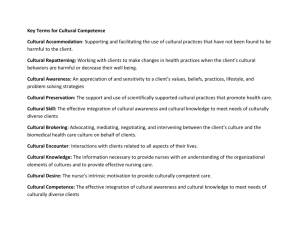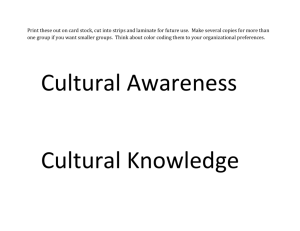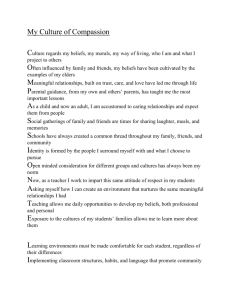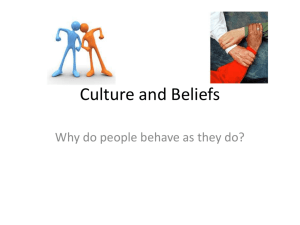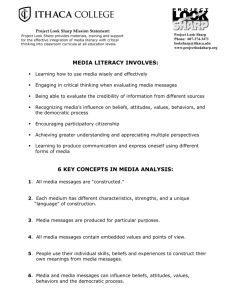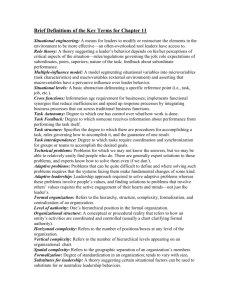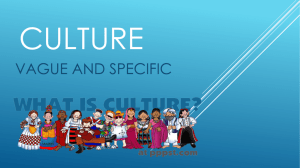Culture
advertisement
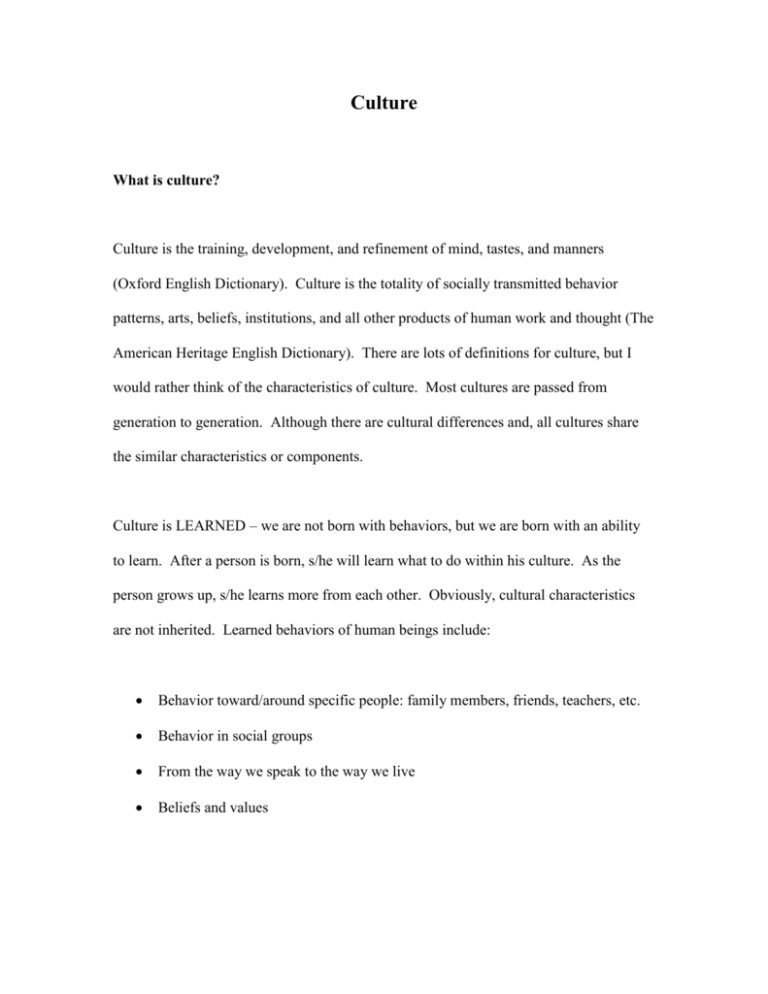
Culture What is culture? Culture is the training, development, and refinement of mind, tastes, and manners (Oxford English Dictionary). Culture is the totality of socially transmitted behavior patterns, arts, beliefs, institutions, and all other products of human work and thought (The American Heritage English Dictionary). There are lots of definitions for culture, but I would rather think of the characteristics of culture. Most cultures are passed from generation to generation. Although there are cultural differences and, all cultures share the similar characteristics or components. Culture is LEARNED – we are not born with behaviors, but we are born with an ability to learn. After a person is born, s/he will learn what to do within his culture. As the person grows up, s/he learns more from each other. Obviously, cultural characteristics are not inherited. Learned behaviors of human beings include: Behavior toward/around specific people: family members, friends, teachers, etc. Behavior in social groups From the way we speak to the way we live Beliefs and values Culture is PATTERNED – people within a culture do the same things repeatedly, and when a society agrees upon certain relationships, a system of meaning is developed. Language is perhaps the most formal meaning system and dialects are examples of a complex and established system of meaning. Culture is SHARED – archaeologists can tell the period of certain artifacts by judging from the decorations on them. Shared behaviors can be easily understood by archaeologists. Culture is CUMULATIVE – As it exists in a state of constant change, there are different versions of things. It gradually builds on as time goes by. However, they are only minor changes. There are rarely sudden and complete changes. Culture is NEGOTIATED – members of a society have a system of meaning developed from negotiated agreements. It also consists of a process of negotiation. Beliefs and values are developed and affect every learned behavior. Belief system involves myths or legends that give an insight into how members of a society should feel, think or behave, whereas a value system differentiates right feelings thoughts and behaviors from wrongdoings. Why is the study of Past Culture important? Human beings learn from culture how to survive in the world. Unlike animals, we cannot protect, keep us warm, run fast, or attack animals with our teeth or jaws. So, we have to teach our children how to find food, clothes, and protect ourselves. Our survival skills are modified over long periods of time. Learning more about the culture diversity can improve our life: how to get along with others better, how to adjust ourselves to the diverse culture, or how to adapt new inventions. The comparison among cultures will provide answers to questions about human life. What makes us the same, and what makes us different. Learning these will help us to understand the cultural characteristics of a certain society. As teachers or educators, it is crucial to realize the essential components of culture. Since culture is learned, not born, it is important to plan effective strategies of teaching so as to give an insight to our children how to establish a system of values and beliefs that will virtually affect their behavior. References: Clifford Geertz, Interpretation of Culture, 1973 John H Bodley, Cultural Anthropology: Tribes, States, and Global System, 1994 http://www.wsu.edu:8001/vewsu/commons/topics/culture/culture-index.html


